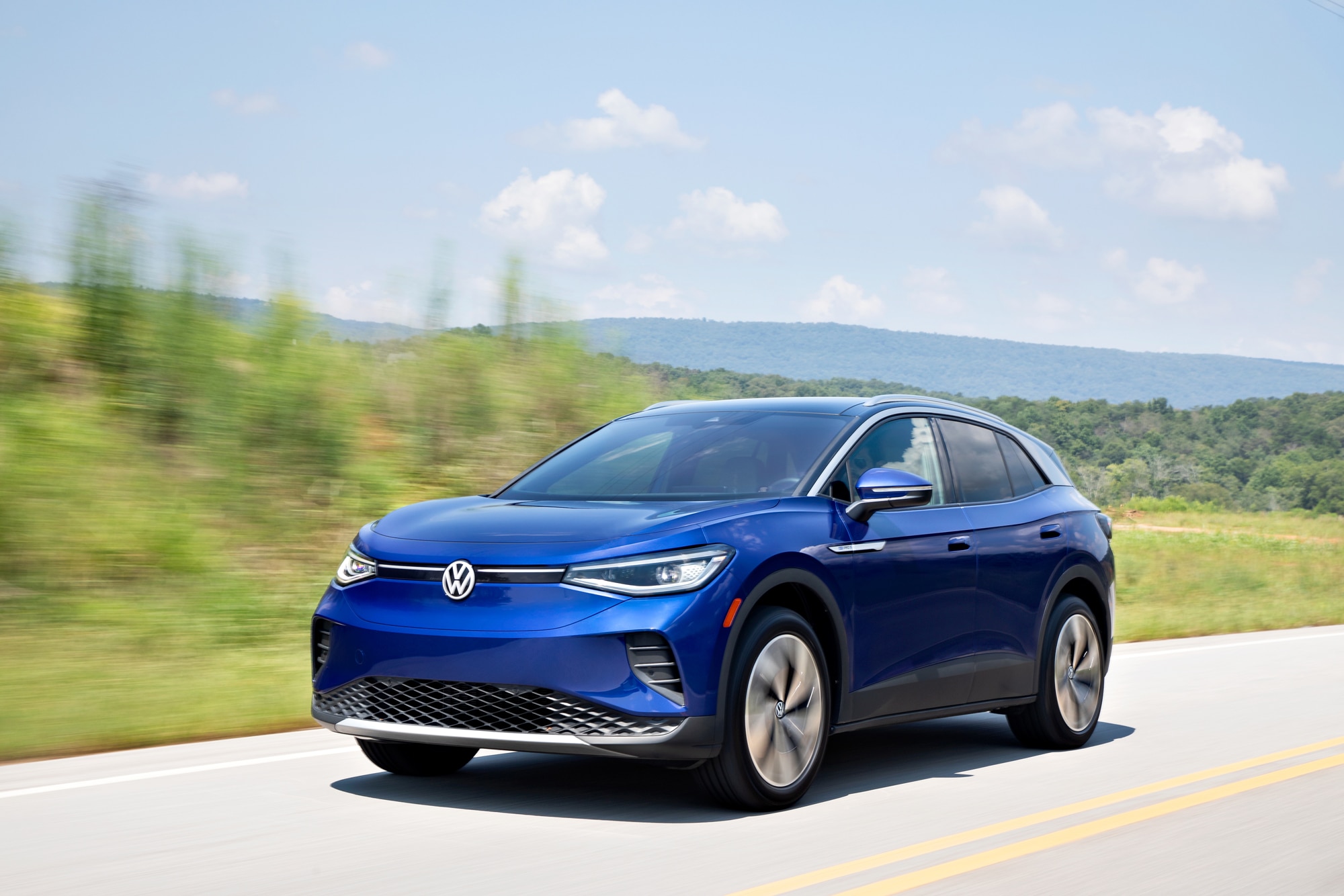How Much Does It Cost to Charge an Electric Car?
Depending on where, when, and how you charge, powering an EV could cost more than fueling a gas-powered car.
 Volkswagen
Volkswagen
Updated July 6, 2023
As automakers work to ramp up their electric vehicle (EV) sales to meet increasingly aggressive fuel-economy and emissions regulations, freedom from high gas prices is a common selling point. Tesla on its website even claims an estimated $4,800 in savings on gasoline with the quoted price of a new Model 3. But electrons are fuel, too, and if you’re considering the switch to an EV, it’s worth thinking about how much money you’ll spend charging it.
Rates of electric charging fluctuate
Costs to charge an electric car aren’t posted on roadside billboards but they can surge and fall just like gas prices, and the variety of available methods for EV charging means it can be hard to generalize the cost of a single battery top-up.
For instance: the going rate for a kilowatt-hour (kWh) of electricity for residential customers in the United States was $0.1585 in March 2023. But that’s just an average rate — depending on where you live, your electricity provider, and the time of day you charge the car, your costs may be higher or lower. Pricing for public charging stations (or stations available to the public but operated by private charging networks) can be even more opaque. Oftentimes you’ll pay a set rate per kWh of energy, just like at home. There are also times when the charges could vary depending on the speed at which the energy is delivered or how long you’re plugged in. And in some cases, the price is set by the businesses that own the land the stations are on, not by the charging network that administers the stations.
Charging depends on battery capacity
The amount of energy a battery can store varies from model to model. An extended-range 2023 Ford Mustang Mach-E has up to 72 kWh of usable battery capacity, for example, and the extended-range 2023 Ford F-150 Lightning holds up to 131 kWh. At average rates, if you were to add 100 kWh of energy while charging an EV at home, you’d spend $15.85 and get a maximum of about 300 miles of driving range depending on the efficiency of your EV. But if you were to replenish 100 kWh using an Electrify America fast-charging station, the cost to charge an electric car is around $0.48 per kWh, or $48 total. Tesla asks for as low as $0.28 per kWh at certain Supercharging stations (rates vary locally), which would mean $28 for this hypothetical charge.
EV charging vs fuel costs
The wide range of electricity prices means that driving an EV isn’t always cheaper than driving a gas car. On a per-mile basis, the cost to fuel a 2023 Volkswagen ID.4 First Edition for one mile at highway speeds would be about $0.06 if you charged at home, or around $0.18 at an Electrify America fast charger. It would cost approximately $0.12 to power the similarly-sized, gas-powered Volkswagen Tiguan for a mile on the highway, assuming a gallon of regular gasoline costs $3.68, the U.S. average in June 2023.
Like so many things in life, the answer to, ‘How much does it cost to charge an electric car?’ is, ‘It depends’. EV owners tend to use their cars differently than owners of gas-powered cars, taking shorter trips less frequently. If switching to an EV also changes your driving habits, the difference in your spending on fuel compared with a gas- or diesel-powered car will vary, too. Other behaviors can influence cost of ownership, as well — relying on DC fast charging isn’t just more expensive than charging at home, it can also shorten the life of your EV’s lithium-ion battery, and over time might reduce your car’s maximum driving range. It’s a complicated picture, and one that may change as EVs and charging technology mature. For now, driving an EV will save on emissions, but it’ll only save you fuel money if you plug in at home.
Written by humans.
Edited by humans.
 Annie White
Annie WhiteAfter earning a degree in political science from Boston University in 2012, Annie White wisely chose to put those skills aside to pursue a career writing about cars. Since then, she has driven and reviewed hundreds of vehicles representing the full spectrum of the market and has also written about automotive technology and business trends. Her dream car is a Geo Tracker.
Related articles
View more related articles